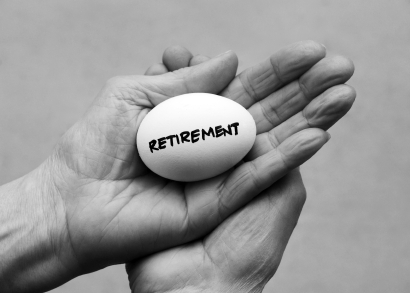
Pamela Yellen was recently interviewed by AARP about the Bank On Yourself wealth-building method for an article on “Saving Your Nest Egg in Tough Times.”
Scroll down to the second paragraph below the “50/50, if you’re 50” subhead to read the advice Pamela gave for investors age 50-65 who are fed up with watching their hard-earned nest-eggs shrink yet again.
What about investors over age 65?
Pamela also gave advice for investors between the ages of 66 and 85 who want to add more guarantees and predictability to their financial plan and bump up their returns without the risk of stocks and other investments.
Although there wasn’t space to include that advice in the AARP article, this is an increasingly popular option for Americans up through the age of 85.
This little-known option provides many advantages that annuities and CD’s do not have, including…
- Provides guaranteed growth and a higher return
- Exceptional flexibility and liquidity
- Protection from estate taxes
- Automatic long-term care coverage at no additional costs (in states where it’s available)
The Bank On Yourself Professionals are well-versed in this option and can conduct a free Analysis that will help you determine which plan is best for your unique situation.
If you’re not sure where you’ll find the funds to start a plan, don’t worry. The Bank On Yourself Professionals are masters at helping their clients of any age restructure their finances to free up seed money to fund a plan that will help you reach as many of your long-term and short-term goals as possible – in the shortest time possible.
Remember – Wall Street already lost more than 45% of the typical investor’s savings TWICE in the last decade. How would it affect you if this latest stock market rout is just the beginning of another look-out-below crash?
To find out how you can add predictability and guarantees to your financial plan and have the financial security and peace of mind that you want and deserve, request your FREE Analysis now. You’ll be connected with one of only 200 financial representatives in the country who have met the rigorous training and requirements to be a Bank On Yourself Professional.


Pamela – was a bit surprised to see indexed annuities as part of your recommendations – was the purpose to be a bit broader than just BOY?
Annuities can be a good option for qualified plan money that you want to move into a Bank On Yourself plan. I own a couple in my profit sharing plan (that I wish I never started) for that very reason.
Annuities may have their place, but they don’t hold a candle to properly structured dividend-paying whole life, as you already know, Bill.
Scroll down to the second paragraph below the “50/50, if you’re 50″ subhead to read the advice Pamela gave for investors age 50-65 who are fed up with watching their hard-earned nest-eggs shrink yet again.
I am 56 and I have no idea what you mean by the above statement.
Scott, Pamela was referring to this section of the AARP article…
But Pamela Yellen, an author and founder of BankOnYourselfNation.com, a website dedicated to helping people achieve financial security, says older investors own far too much stock. She calls that “gambling.”
“Conventional wisdom about how to save and invest for retirement is not working,” she says. “Is the answer to keep doing what we’ve been doing? I don’t think so.”
In Yellen’s view, Wall Street has been “brainwashing Americans that we have to risk our money in order to grow it.”
Whole life, indexed annuities
She suggests that investors ages 50 to 65 buy a dividend-paying whole life insurance policy with riders or options that “supercharge” the growth of the cash value in the policy, especially during the early years of the policy. She says the growth in these policies is guaranteed and predictable with no market volatility.
Yellen also recommends indexed annuities that are tied to the market but with caps for losses and gains.
If the market goes down, she explains, you have no capital loss. If the market increases, say by 10 percent, investor gains may be capped at 7 percent. Some annuities offer a rider that provides a guaranteed lifetime income benefit.